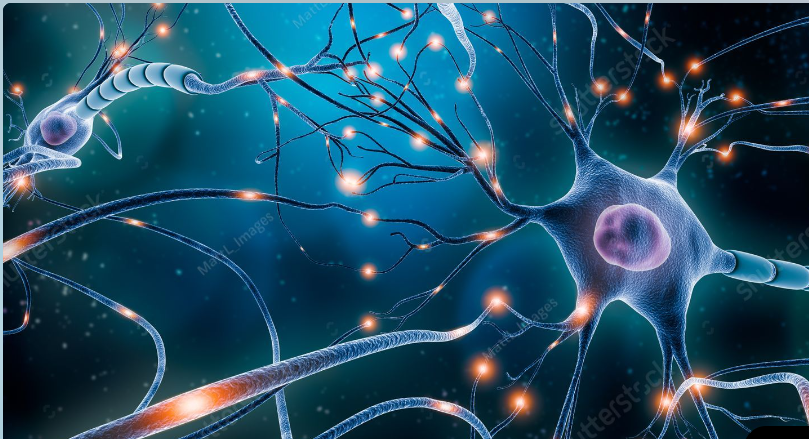Bioresorbable Neurostimulator: Boon to the Medical Industry
Scientists have developed a bioresorbable neurostimulator that can be activated and degraded inside the body by simply using varying intensities of ultrasound waves.
Research published online in Nature Communications in November 2023

Electrical signals are essential for the nervous system to communicate with the brain and other parts of the body for proper functioning of the body.
Photo credit: Shutterstock
Electrical signals play a vital role in the development and functioning of the human body. They are essential for our nervous system to exchange messages with various body parts, enabling us to move, speak, think, and feel. Moreover, electric signals have therapeutic effects and have been widely used to regulate the nervous system and reduce pain. For instance, electroceuticals, a branch of devices that deliver electric signals to a specific affected nerve, have been gathering increasing attention.
The fourth industrial revolution transformed healthcare with the advent of advanced human-centric technologies, such as gene control, artificial organs, and implantable monitoring devices. In particular, a medical implantable device made up of bioresorbable material called bioresorbable bioelectronics, has become popular as a next-generation healthcare device. Owing to their biodegradable nature, they eliminate the need for implant removal surgeries following treatment.
However, conventional bioresorbable electronics depend on the material properties, providing no control over their lifespan and degradation. This has led to challenges such as unpredictable device disintegration before treatment completion, or prolonged implant lifespan leading to negative effects on the health due to device residues in the body. Additionally, there is a scarcity of sustainable energy sources in bioresorbable implants. Overall, there is a need for advanced implantable devices with additional control over their lifespan.
Recently, a research team including Professor Sang-Woo Kim from Yonsei University, South Korea, in collaboration with the Samsung Medical Center (Prof. Byung-Ok Choi), developed a novel bioresorbable neurostimulator that is battery-free, effectively treats peripheral neuropathies and can be removed quickly from the body, non-surgically. This device comprises a system that harvests energy using ultrasound and a biodegradable cuff electrode. The researchers studied the treatment efficacy and safety of this device in a mouse model.
It was observed that the bioresorbable neurostimulator effectively promoted the recovery of the sciatic nerve (longest nerve; from the lower back to the legs) in a mouse model with nerve injury. In addition, the device did not cause any adverse effects. Prof. Sang-Woo Kim elaborates, “We have validated the effect of our neurostimulator on treatment of compression injury and Charcot-Marie-Tooth disease.”
Prof. Sang-Woo Kim further adds, “Our bioresorbable neurostimulator with the advantage of removal of device without any surgery can reduce negative health effects and cost burdens on patients. In the future, we expect that our device can be developed to treat severe obesity and neurological disorders such as Parkinson’s disease and Alzheimer’s disease. Thus, our study is expected to have remarkable technological and economic impacts with potential applications in the medical industry.”
This novel on-demand bioresorbable neurostimulator will enable personalized treatment of patients, as it can be absorbed and non-surgically removed from the body. Owing to its breakthrough finding, this work has received high acclaim, leading to its selection in the Editors’ Highlights of Nature Communications.
Title of original article: An on-demand bioresorbable neurostimulator
DOI: 10.1038/s41467-023-42791-5
Journal: Nature Communications
Contact corresponding author: Prof. Sang-Woo Kim, kimsw1@yonsei.ac.kr and Prof. Byung-Ok Choi, bochoi@skku.edu
Recommended Articles
Professor Jong-Hyun Ahn
Novel technique for producing high-resolution micro-LED displays
Professor Seong Chan Jun
Professor Donghyun Kim
Array of hope: Up close and personal with mitochondria in neurons